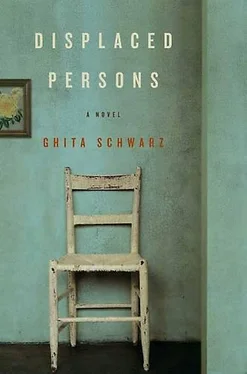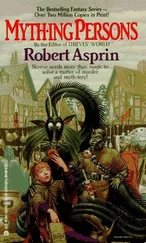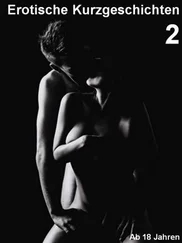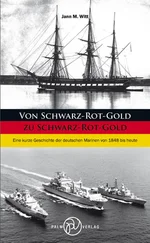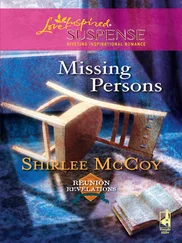But he was awake, it was sunrise, and he was cramped and hot. He looked next to him, Fishl stirring. There was a toilet downstairs, and when he heard the old woman busy in the kitchen he padded down the steps in his socks. Upstairs again, he saw Fishl already dressed.
I can’t go anywhere, he whispered.
All right, said Fishl. I will go to Belsen, see what is what.
He slept again, then awakened, then moved downstairs to the toilet and returned to the bed, sweating and cold. But it was all right. He did not feel the sickness of typhus upon him. It was only a fever, a small delirium, a reminder that his body was still unfamiliar with its strength. No more typhus. No more-he would be occupied now only with little illnesses, flashes of heat, the obstacles of an ordinary life. If he could live through typhus in war, he could live through a mild fever in peace. He went to his rucksack and pushed down a corner of hard bread. He would rest one day, then venture out in the morning to look for the living with Fishl.
He lay down, curled himself toward the wall of the room, then tucked his hand underneath his trousers, pushed his fingers into the hidden pocket, felt for the cotton bag he had sewn in the lining. He was alone. The wariness he felt at night had dissipated. He could let himself look.
Still there, still there: the two tiny photographs, creased and dirty, the worn paper giving off a sour smell, images he had miraculously saved, hiding them when he had to in his fist, under his tongue. Fishl and all the others he had known would be jealous, pained with envy, if they knew what he kept with him at all times, in his used, free-man’s clothes, clothes with hidden pockets that could protect his images of the human world. The photographs, crumbling and dampened-he must have been a young child when they were taken-were to him like identity cards, identity papers, wordless evidence. He looked at his father’s narrow eyes, his mother’s solemn face. It was a serious thing to make a portrait. His father looked angry when he tried to be serious, but his mother, more calm perhaps, had a softness. Whatever fierceness she had inside her she disguised from the local photographer. More gentle than his father. He could not remember so much as a shout from her. His father, that was a different story. And yet they had made a family.
Yes, he knew who he was. He had not betrayed himself. He may have been desperate for food, he may have been filthy, but he had tried to wash when he found water. He may have stolen, but almost never from someone weaker than himself. He had not hurt or beat, even in the one barracks where he had been in charge of the others, even when beaten himself by a fellow Jew for not beating the others-a fellow Jew!-that man whose memory he would never block out, he was the enemy, he was worse than the enemy! Suddenly a wave of anguish rose up in his throat, and he coughed to muffle it, to prevent it from becoming a cry. He would not, he had not, become what they wanted them to become, animals desperate to live, no, something uglier than animals, for animals did not kill except for food. He had not fallen in war, and he would not fall now. He still had his photographs, and now he had money. It was peace.
He heard a footstep, the old woman padding about. He stood and leaned against the windowpane, his eye on the doorway. The room was clean, but the paint looked years old, and there was a smudge on the doorframe, a few centimeters below the top of the door. His heart started beating fast, for no reason, and he shook his head to calm down. It slowed to normal, and he sat down, no thoughts in his head.
From the mattress he could see outside. The bedroom window looked out upon the garden blooming with white summer flowers: lily, gardenia, sweet pea. The old woman came out to the garden in the afternoon to tend it. He watched her. It was a modest house but large for one woman. There were men’s clothes in the wardrobe of his room, but not too many. A widow, he imagined. Perhaps with grown children. He watched her bend in the dirt, go into the house with flushed cheeks, breathing hard.
He turned again at the doorframe. That smudge. Then he got up to look closely, his heart steady now. No, it was not dirt but a little set of holes at a diagonal, as if-but there was no other explanation. A mezuzah had been ripped out. This had been a Jewish house.
When he came down to the kitchen an hour later the old woman was gone, a cup of tea prepared for him, no longer hot.
FISHL RETURNED IN THE evening, face gray. I’m going, he said.
What!
It’s something-it’s something terrible there. Nowhere even to-they’ve burned down the barracks to kill the rats.
They’ll come back, he muttered.
Yes, said Fishl. Here at least it is clean.
What did you eat? he said.
Soup, a thick soup. And I have flour and sugar. I gave her the flour. She should not know what we have.
The reichsmarks we can give her.
Maybe.
They were both silent for a moment.
There was an office to give a list of names, Fishl said. To give and to see. But there were none for me.
He could find no answer to Fishl and stayed silent.
Fishl continued. In Zdanow perhaps I will find.
First we could go to the American zone. We have money. We have stones. We can go anywhere. There they will have more lists.
I am losing time, said Fishl. Some might have returned already. And perhaps my father’s property still stands.
He looked at Fishl. Here we are together. Yours will come here, looking.
Fishl shook his head. They could go anywhere.
They had money. Money made one free and not a prisoner. With money, one purchased food and ate it slowly. With money, one moved about the country, not trapped in a transit center as if one still were a slave, awaiting death. He had saved Fishl’s life more than once, and Fishl had saved his too. Now money could pay to save a life in danger. They had money and stones. With money and stones, Fishl was willing to leave him, travel alone, despite knowing little remained at home. With money, Fishl was willing to go, and he was willing to stay.
WHEN THE FEVER PASSED the next day he washed his American army undershirt and hung it from the window. It looked alone there, white and thin. The blue shirt he had from the camp storehouse was not too dirty. He thought of taking some of the widow’s husband’s clothes-what, should he buy from her?-but he did not.
After washing he dressed, his blue shirt against his skin, wandered out into the warm air, venturing to the end of the road, near a house with three walls. He stood apart from the house, clutching his rucksack in his hand, watching the road. There were orders that any driver should pick up a refugee and take him as far as he was driving. A farmer stopped to load him onto the back of his truck, where three men pushed aside the empty potato sacks. The men came from a region of Romania that bordered with Poland, and within the first moments on the truckbed, exchanging information in Yiddish, they knew they would not find a name in common. He took in the smell of the raw potato skin, mixed with the odor of dirty burlap and the men’s unwashed bodies. But it was only a few kilometers to the refugee camp, and the cool air that bit into his skin wafted the smell away. He could see them looking at him with curiosity, envy, his voice steadier than theirs, his clothes mended. He thought to open his rucksack and offer them a tin of something, then thought better of it. They were on their way to fuller rations at the camp. He would let them go ahead of him in the lines.
Half a kilometer from the entrance of the camp the driver stopped to let them down. He tried to walk a bit behind the trio, but they were so slow that at last he moved ahead of them, his eyes fixed on the wire fence surrounding the camp. He turned his head once to see them growing smaller behind him, the tall one leaning on the other two, bodies linked together, each gray costume blurring into another.
Читать дальше
